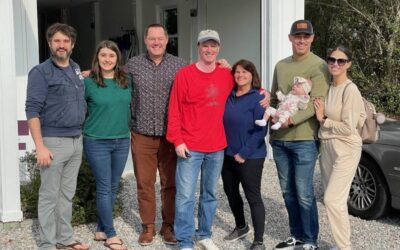The sharing economy has been one of the most powerfully disruptive trends of the modern era. Companies like Airbnb, Uber, and Lyft have made it possible for people to rent out their homes, cars, and even their time to others. This has led to a number of benefits, such as reduced waste, increased efficiency, and more affordable access to goods and services.
The Sharing Economy Is Not Really About Sharing
There is, however, a dark side to the sharing economy. While it has made it easier for people to rent assets that they would otherwise not be able to afford, it has also created a new class of haves and have-nots. The people who own the assets are making money, while the people who rent the assets are still struggling to make ends meet.
This is not really a sharing economy at all. It is more accurately described as a “mass renting economy.” The people with the stuff are renting it to the people who can’t afford the stuff.
Rising Real Estate Costs and Interest Rates
The average home price in the United States has increased by more than 20% in the past year, and interest rates have doubled in the last 12 months. This means that people need to borrow more money to buy a home, and their monthly payments will be higher. This is putting a strain on many people’s budgets, and it is making it harder for them to save for a down payment.
The rising cost of housing is a major problem, and it is only going to get worse. The Federal Reserve is expected to continue raising interest rates in an effort to combat inflation. This will make it even more expensive to borrow money, and it will further dampen the housing market.
The net of all of this is that it’s time for the Sharing Economy to evolve to the next level to help solve this problem.
The Future of the Sharing Economy Is Co-ownership
Co-ownership is a model where people pool their resources together to own an asset. This can be anything from a car to a house to a piece of equipment. Co-ownership has a number of advantages over traditional ownership, such as:
- Reduced costs: Co-owners share the cost of the asset, which can save them a significant amount of money.
- Increased flexibility: Co-owners can share the asset as needed, which gives them more flexibility than if they owned it themselves.
- Enhanced community: Co-ownership can help to build community and create a sense of shared ownership
In addition to these advantages, co-ownership can also help to address some of the challenges associated with the renting economy. For example, co-owners are much more likely to take care of an asset than a renter would because they own it. Obviously, a co-owner of the property will benefit from the equity appreciation of that asset (whereas a renter will not).
Borrowing Sharing Economy Principles
The sharing economy has already made it easier for people to find and connect with each other. We can borrow these principles of design, process, and technology to increase the speed, efficiency, and trust of building co-ownership groups. For example, we can use online platforms to match people with shared interests and needs. We can also use technology to automate the management of co-owned assets, such as scheduling maintenance and repairs. We can use data to validate people (our process is called PlumCertified, which is a background check, a credit pull, and a validation of liquid assets).
A Future in Which Everyone Can Own Anything
Co-ownership has the potential to create a more equitable future. It can help to break down the barriers that prevent people from owning assets, such as high costs and lack of credit. In a future of co-ownership, everyone can own anything. We can all have access to the things we need to live our lives, regardless of our income or financial situation. At Plum, we’re starting with vacation houses, but the big vision is that we can help people identify an asset, form a group, build an agreement, get introduced to the right experts (brokers, lenders, etc), manage their co-owned asset gracefully, and then eventually sell their share.
This is a future worth fighting for. It is a future in which everyone has the opportunity to thrive.




